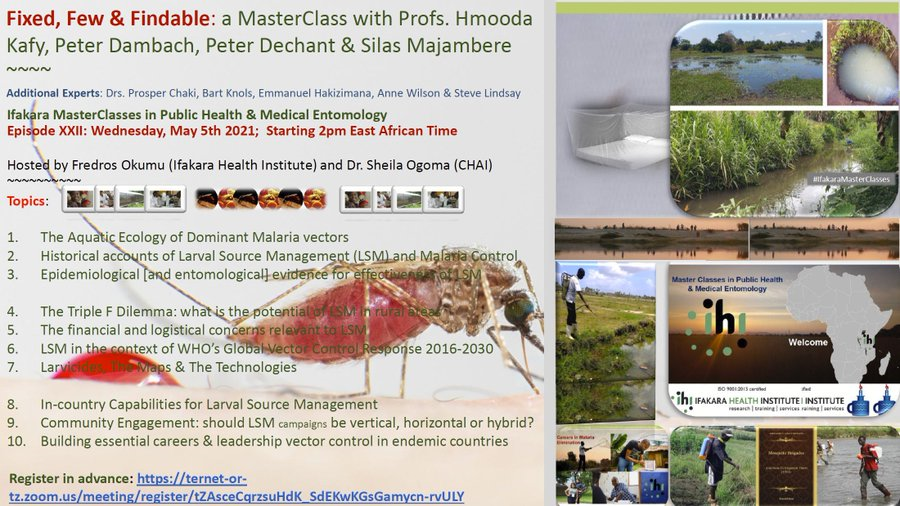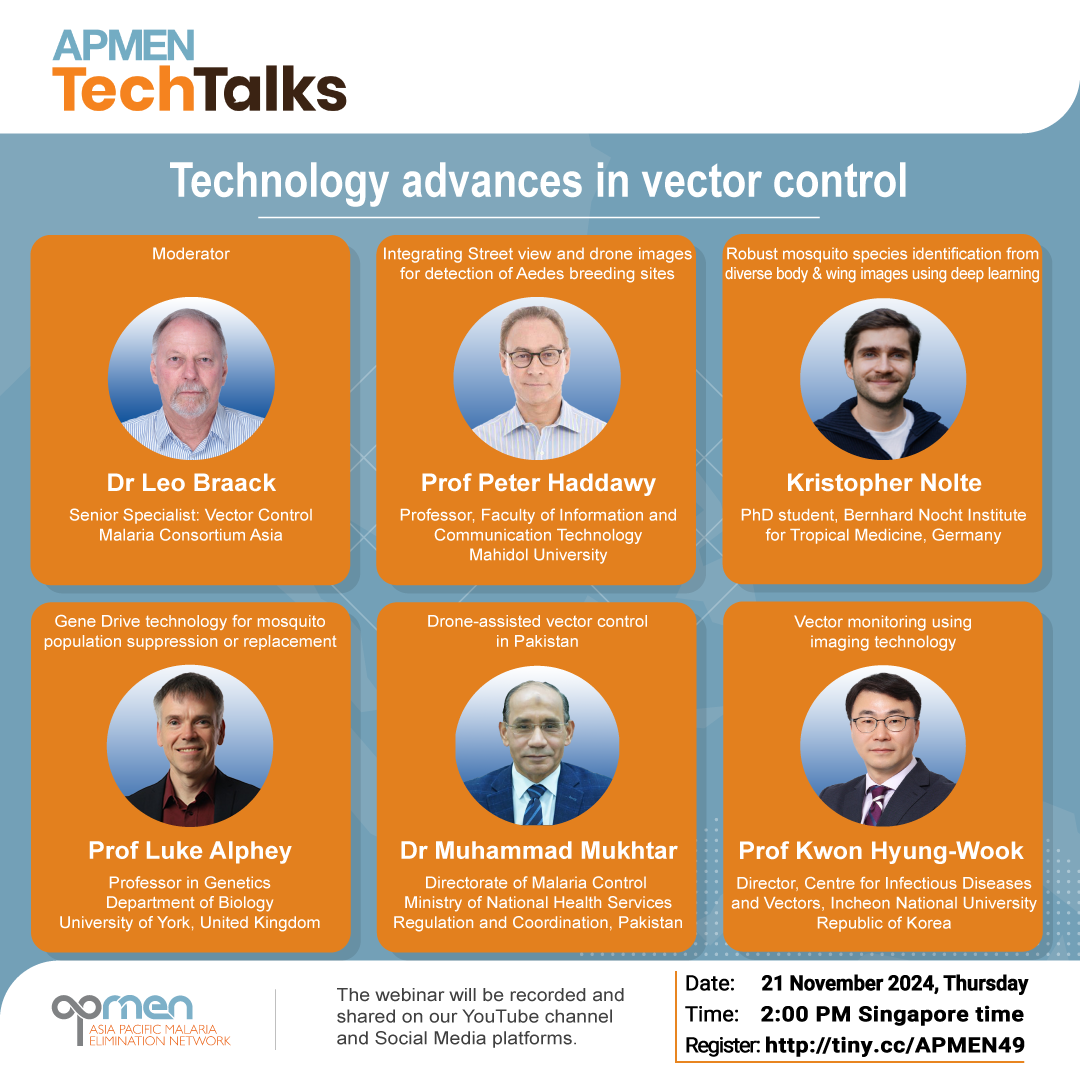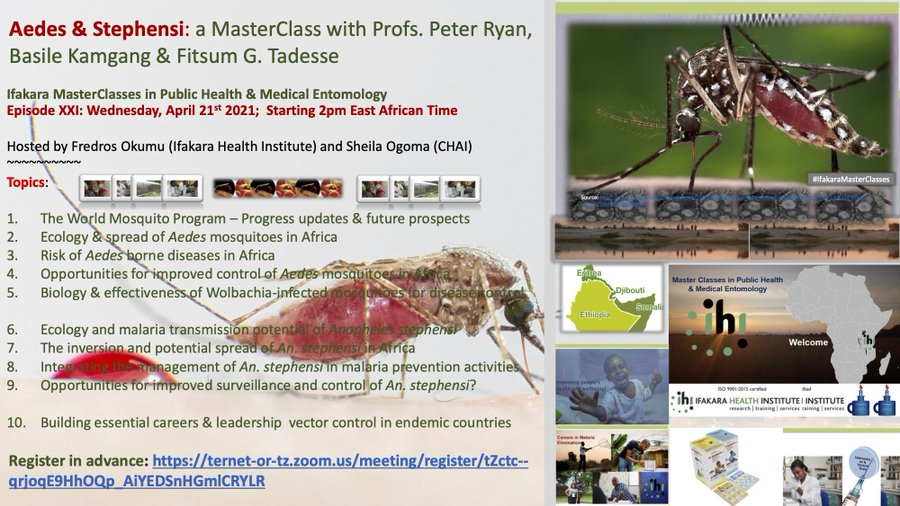Ifakara Masterclass Edition 22- Fixed, Few & Findable: A MasterClass with Profs. Hmooda Kafy, Peter Dambach, Peter Dechant & Silas Majambere.
Collaborator(s): University of Heidelberg, Germany; Federal Ministry of Health Sudan, Sudan
Published: 05/05/2021
Fixed, Few & Findable
The 22nd edition of the masterclass hosted by Fredros Okumu from Ifakara Health Institute (IHI) and Sheila Ogoma from Clinton Health Access Initiative(CHAI) features Profs. Hmooda Kafy, Peter Dambach, Peter Dechant & Silas Majambere.
The discourse begins with some historical accounts of Larval source management(LSM) and malaria control and elaborates the role LSM can play along with other malaria control measures. WHOs account of LSM is being a supplementary measure for malaria vector control is debated which mentions LLINs and IRS being the backbone of malaria vector control, as they can be rapidly scaled up across a wide range of ecological and epidemiological settings, larval source management is an additional strategy for malaria control in Africa and unlike LLINs and IRS, which target the adult mosquito vector, LSM targets the immature, aquatic stages of the mosquito (the larvae and pupae), thereby reducing the abundance of adult vectors. If all potential breeding sites were eliminated or Larval Source Management: a supplementary measure for malaria vector control: An Operational Manual 2 treated (unlikely for most rural areas of sub-Saharan Africa), it could be expected that LSM would reduce the number of infective bites per person per year thereby reducing malaria transmission.
The potential of LSM in rural areas and involvement of community personnels in doing so is discussed in detail focusing on a specific question about community Engagement: should LSM campaigns be vertical, horizontal or hybrid? The discussion concludes with the topic of leadership and cooperation for vector control in malaria endemic countries.
THEMES: Vector Control



